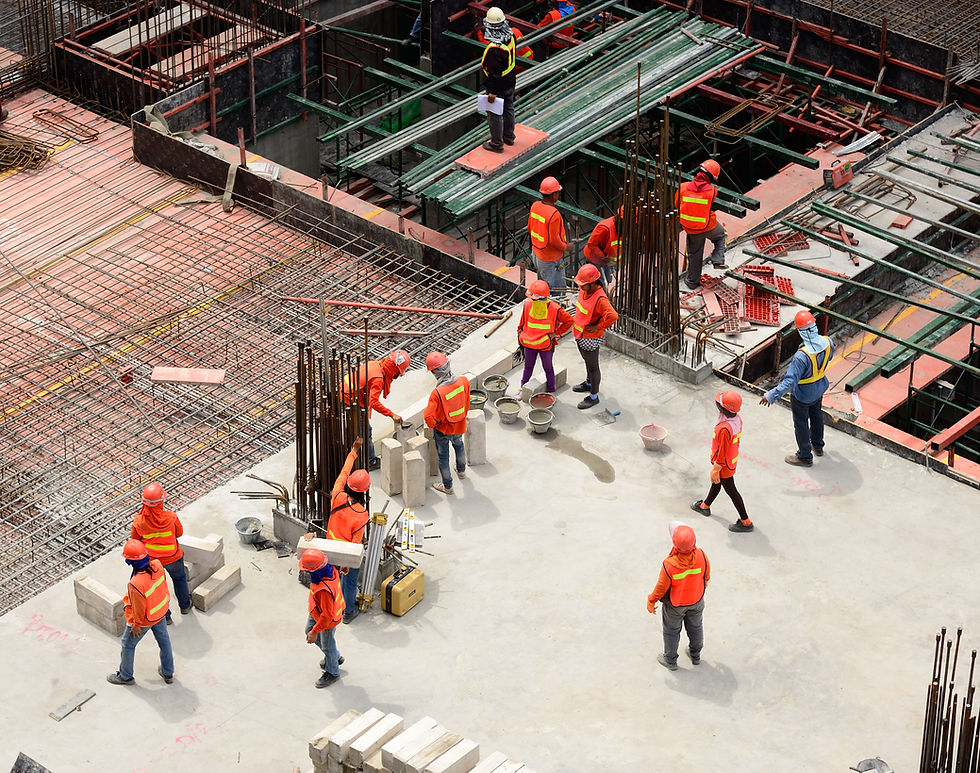Top 5 Benefits of Using Plastic Formwork Systems in Modern Construction
- Pooya Saeedirad

- Dec 16, 2024
- 2 min read
Plastic formwork systems have revolutionized the construction industry, offering a modern, efficient, and cost-effective solution for shaping concrete. Unlike traditional wood or metal formwork, plastic systems are lightweight, reusable, and highly durable, making them a game-changer for both small-scale and large-scale projects. Contractors and builders are increasingly turning to these systems to save time and reduce costs while delivering exceptional results.
One of the standout features of plastic formwork systems is their lightweight design. Compared to cumbersome metal or wood alternatives, plastic panels are easy to handle, transport, and assemble. This significantly reduces labor requirements and accelerates project timelines. Workers can move and install the panels with minimal effort, leading to faster construction without compromising on quality. Additionally, the lightweight nature of the material minimizes the risk of on-site injuries, enhancing safety for construction teams.
Another major advantage is their durability and reusability. Plastic formwork systems are designed to withstand the harsh conditions of construction sites, including exposure to moisture, chemicals, and temperature fluctuations. Unlike wood, which can warp or degrade after a few uses, plastic panels maintain their structural integrity over dozens of cycles. This reusability not only reduces material waste but also results in significant cost savings over time, making them an environmentally friendly option for sustainable construction practices.
The precision and smooth finishes offered by plastic formwork systems set them apart from traditional methods. The modular design ensures perfect alignment during assembly, resulting in highly accurate concrete shapes and dimensions. Moreover, the smooth surfaces of the panels produce clean, polished concrete finishes, reducing the need for additional post-pour treatments. This precision is especially valuable in projects where aesthetics are a priority, such as decorative walls, columns, or intricate architectural features.
Finally, plastic formwork systems contribute to cost-effectiveness in multiple ways. Their lightweight and reusable nature reduce transportation, labor, and material costs. The time saved during assembly and disassembly translates to quicker project completion, minimizing overhead expenses. For contractors and developers seeking reliable and efficient solutions, plastic formwork systems offer a compelling combination of performance, sustainability, and affordability, making them an indispensable tool in modern construction.



Comments